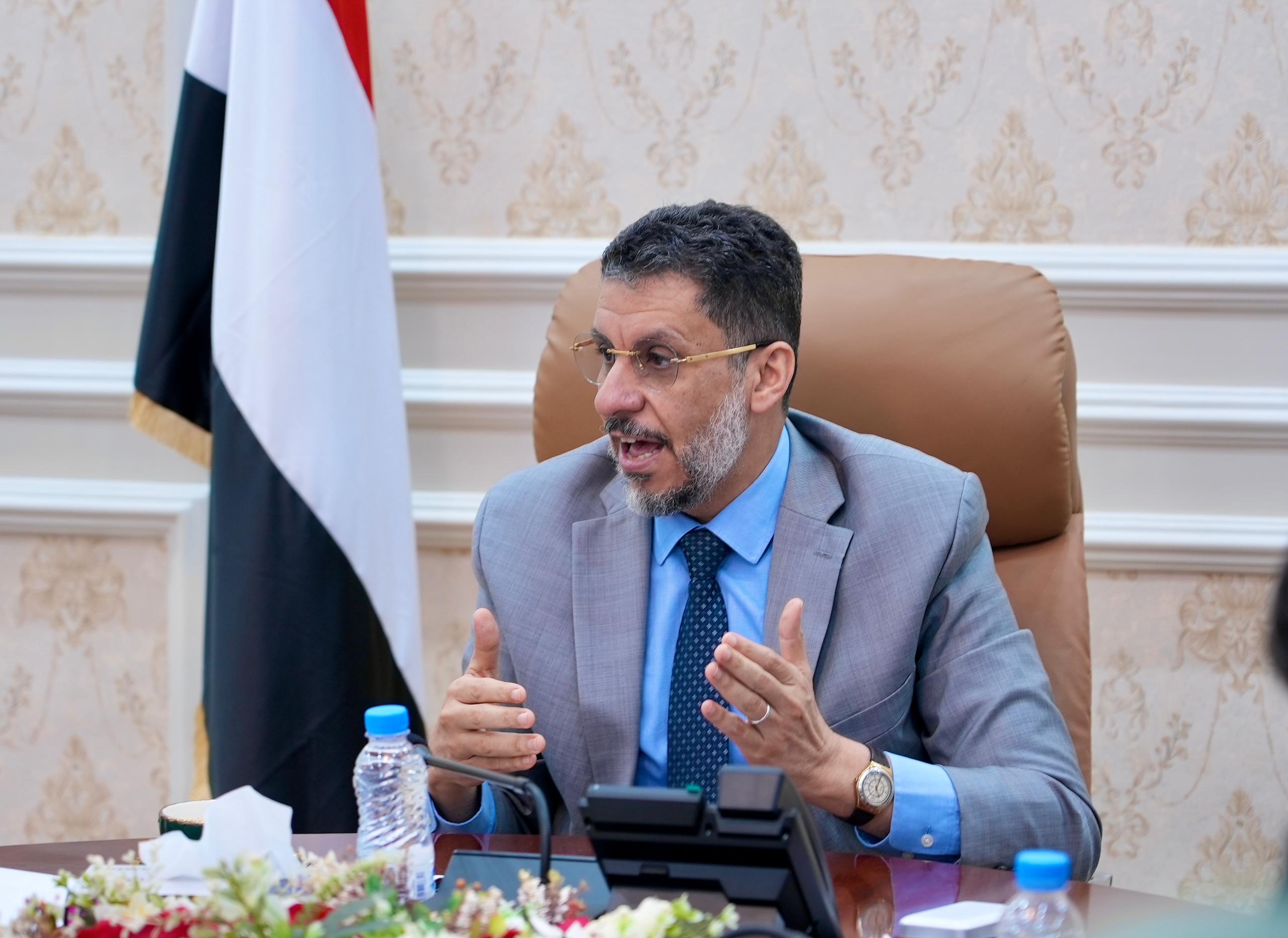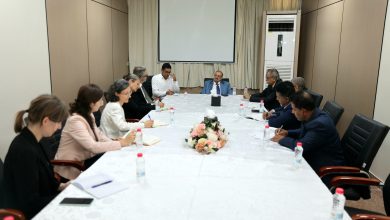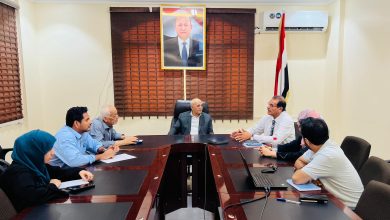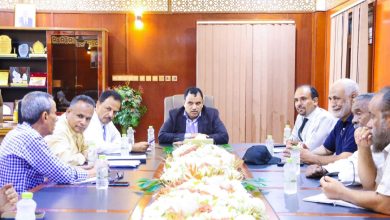Prime Minister leads an emergency meeting with the Central Bank and Finance Ministry to discuss currency exchange rate developments.
Yemen's Prime Minister Leads Emergency Meeting on Currency Exchange Rates

On Tuesday, October 15, 2024, Prime Minister Dr. Ahmed Awad bin Mubarak convened an urgent meeting with the leadership of the Central Bank of Yemen and the Ministry of Finance. The discussion focused on the recent fluctuations in currency exchange rates and the measures being implemented to address these changes. The meeting aimed to assess the impact of these developments on the national currency.
Participants and Key Discussions
The meeting included Central Bank Governor Ahmed Ghaleb and Finance Minister Salem bin Brek. They explored the coordination between fiscal and monetary policies to implement reforms that enhance transparency and governance. The officials also discussed strategies to stabilize the national currency and improve public revenues while addressing existing shortcomings.
Economic Indicators and Challenges
The participants reviewed economic indicators and the current situation of the national currency. They considered local developments, such as the ongoing halt of oil exports due to Houthi terrorist attacks, which have also targeted commercial vessels and international shipping. Additionally, they acknowledged regional and international tensions, particularly the serious escalation of Israeli military actions and its potential consequences across various sectors.
Immediate Measures by the Central Bank
Prime Minister bin Mubarak received updates from the Central Bank Governor regarding urgent actions taken to manage ongoing developments in the currency markets and banking sector. This included the announcement of a public auction to sell $50 million. The Governor highlighted the increasing pressure on the national currency due to the suspension of key national resources, dwindling aid, and declining state revenues. He emphasized the necessary actions required from the Presidential Leadership Council and the government to support the Central Bank’s efforts under these challenging circumstances.
Financial Strategy and Coordination
The Finance Minister provided insights into the financial situation and available tools to support monetary policy. He emphasized the need to rationalize expenditures and enhance revenue generation to control inflation and its effects on essential goods and services. The Minister confirmed that, under the Prime Minister’s guidance, the Ministry is working to strengthen coordination and integration with the Central Bank. This collaboration aims to implement precautionary fiscal and monetary policies while prioritizing actions that will help the country navigate its current extraordinary challenges.
Decisions and Future Actions
The meeting concluded with the approval of several urgent measures to counteract the ongoing currency speculation and the mechanisms for their immediate application.
Commitment to Economic Stability
In his closing remarks, Prime Minister bin Mubarak acknowledged the catastrophic repercussions of the declining national currency on citizens’ daily lives. He affirmed the government’s commitment to addressing these issues and underscored the importance of collaborative efforts among the state, government, and Central Bank to achieve economic and living stability.
Furthermore, Dr. bin Mubarak reiterated the government’s support for the Central Bank’s initiatives and the significance of monitoring their implementation. He emphasized the need for full coordination between fiscal and monetary policies to restore balance to the national currency and improve its value against foreign currencies. This strategic approach aims to maintain overall price stability and enhance citizens’ living standards.
The Prime Minister’s proactive steps reflect a dedicated effort to stabilize Yemen’s economy amidst ongoing challenges, demonstrating a commitment to improving the financial well-being of the Yemeni people.
To follow the news in Arabic





